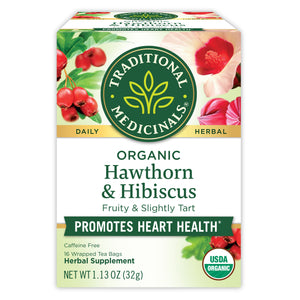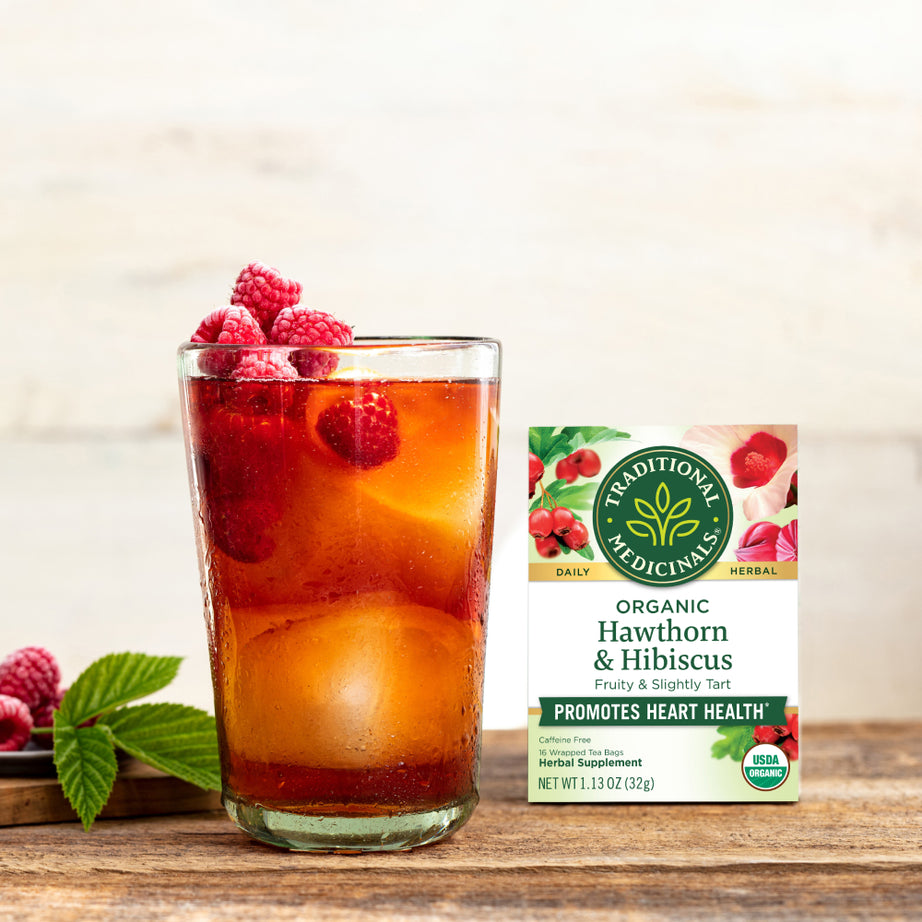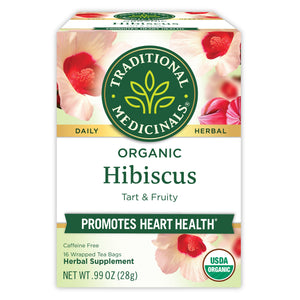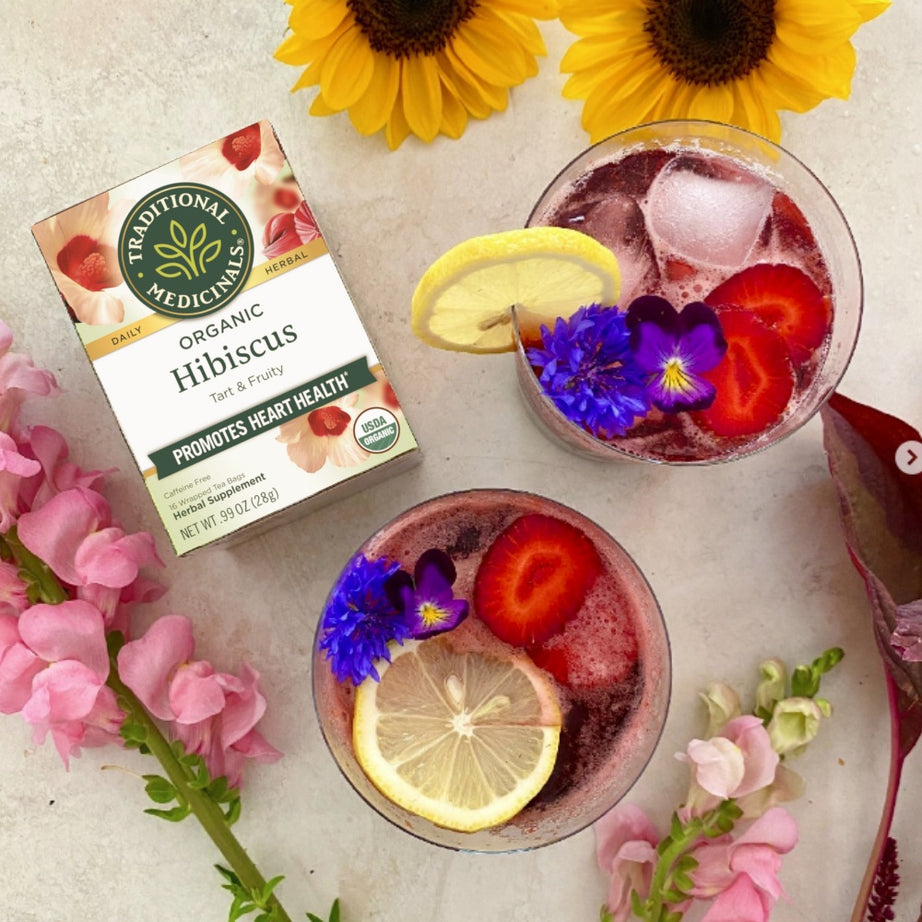
Hibiscus 101
When you brew a cup of our Hibiscus Tea, you’ll witness its rich red herbal goodness infusing into your cup almost instantly. This deep red hue is a unique characteristic of hibiscus, and it’s a trait that’s beneficial beyond tea. In fact, in the West Indies this plant is used to color and flavor rum. It has a nice tangy taste, mildly fruity and lemony. We drink this tea hot or cold when we’re looking for cardiovascular support,* or if we just want something delicious and refreshing.
There are several hundred species of hibiscus shrubs and trees, often peppered with beautiful flowers that can be white, pink, red, yellow or even purple. Hibiscus species are traditionally used as herbal medicine in India, Africa, Central America, China and the Caribbean for many different purposes. Red hibiscus (or Hibiscus rosa-sinensis in Latin) is said to be the flower of the Hindu Goddess Kali. She is known as the “dark mother” who represents time and death, a fierce mother with four arms who accepts hibiscus as a flower offering.

For our tea, we rely on Hibiscus sabdariffa, a species known for striking white flowers with red centers, and use the calyces, which are red, pliable pods that appear after the flowers bloom. Some of our favorite hibiscus comes from Fair Trade certified farms in the fertile Nile Valley of Egypt, where farmers harvest bright red calyces for our tea. We also include blackberry leaf and lemongrass in our blend as subtly sweet complements to the tart and tangy hibiscus.
In Mexican restaurants you may have had it in a beverage called Agua de Jamaica, which is a tart and fruity hibiscus punch with zesty ginger, cinnamon or lime. Hibiscus calyces can also be made into jam, syrup, wine cider or even an herbal margarita. The tender leaves and stalks are sometimes eaten as a salad or in curry seasoning.
Even if you don’t live in a tropical paradise, you can try to create one by growing hibiscus. It’s native to India and the North African region, but it can be grown in areas that get a warm and wet summer or in temperate climates like California. In colder places you’ll want to start the seeds indoors, away from potential frost. Once the cold weather has passed you can transplant them outdoors. Hibiscus shrubs like water, and you’ll know the herbal medicine is almost ready to be harvested once the flowers appear. A little over a week after the flowers bloom you’ll notice flexible red calyces appearing. Pick them regularly, and use them fresh or dry them to enjoy throughout the year.
Hibiscus tea is as potent as its rich crimson color. We hope you’ll now see this refreshing red beverage as more than just a sweet and colorful treat. Whether you’re looking to support your cardiovascular system or just cool down,* Hibiscus Tea can help.
To learn more about plants and herbalism, check out our Plants section of our Plant Power Journal.








